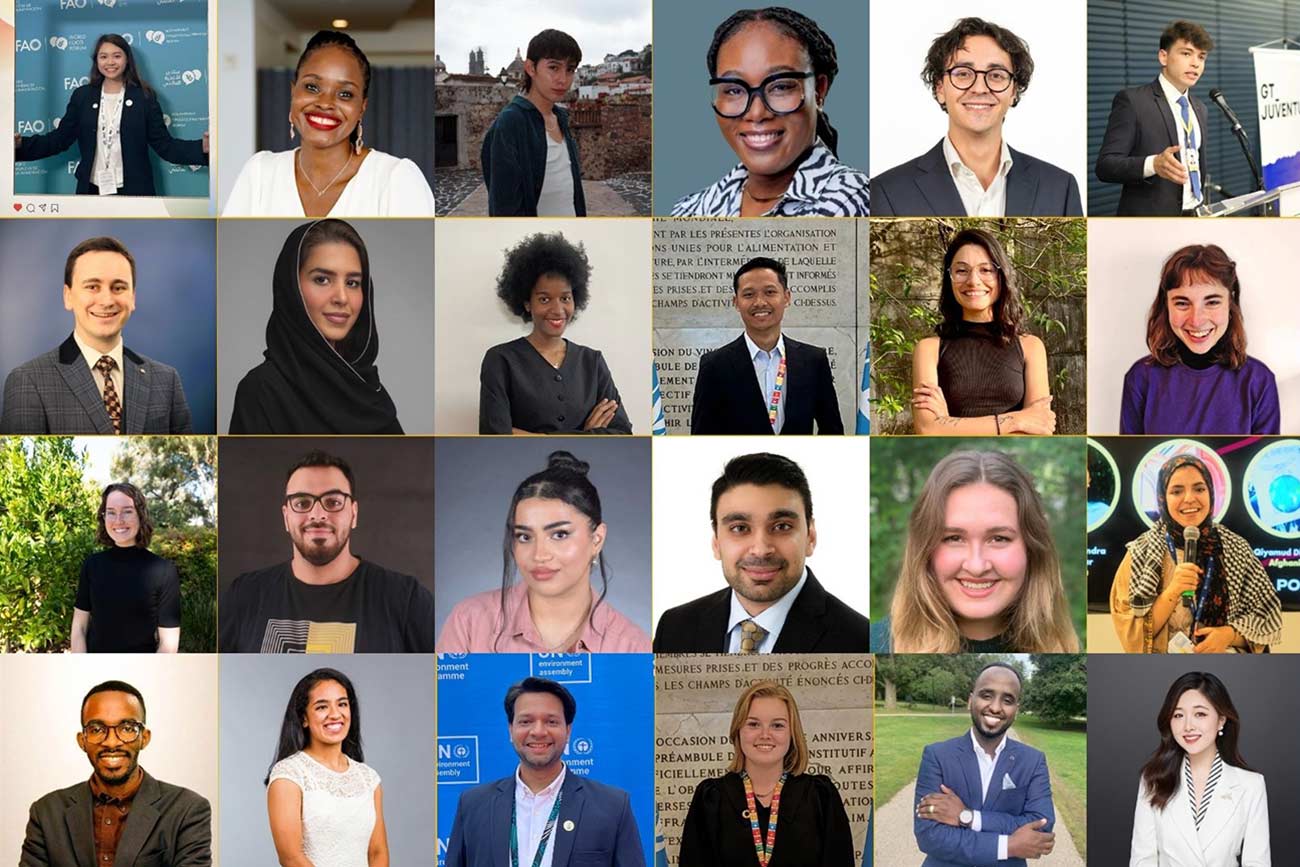The WFF Announces Third Cohort of the Youth Policy Board

The Youth Policy Board is committed to providing a strategic, youth-led vision to the policy-related activities undertaken by the WFF through the Youth Assembly. Board members lead the Forum’s work on youth policy positions and coordinate regional activities. Their role is to support and empower youth to engage on food and agriculture topics, enabling their voices to be heard in key international events and processes through active participation in the Youth Assembly and respective outcome documents. The Assembly occurs annually, with virtual regional and thematic sessions cumulating in the main, in-person session at the WFF flagship event held every October in Rome, Italy.
Established global and regional policy compendia, developed through inclusive consultations with youth groups worldwide, serve as the guiding base for endorsed activities throughout the year. The YPB is responsible for deciding and coordinating the Youth Assembly sessions throughout the year, proposing the agenda and topics, and undertaking the following duties:
- Making calls for regular and recurring Youth Assembly sessions in coordination with the WFF Secretariat;
- Coordinating the general Youth Assembly meetings at the WFF flagship event in close collaboration with the WFF Secretariat;
- Leading the Youth Assembly sessions, including setting themes, topics and questions for consultations and discussions;
- Ensuring follow-up of Youth Assembly sessions and drafting final outcome documents.
2024-2025 Cohort Statistics
In 2024, more than 3 000 individuals applied to be part of the new YPB cohort. Most applications were received from Africa (1 885), followed by Asia and the Pacific (539), Europe and Central Asia (355), Latin America and the Caribbean (118), Near East and North Africa (142) and North America (131). The majority of applicants were young women.
Out of these, 18 new members were selected and onboarded to the team. With these new additions, the YPB now has 24 members – four per region, including from Small Island Developing States, Land Locked Developing Countries and Least Developed Countries.
The 2024 - 2025 YPB cohort consists of 24 young changemakers from around the world:
- Andile Mnguni – South Africa
- Audrey Wong – United States of America
- Chemora Mc Knee – Saint Vincent and the Grenadines
- Daniel Valdovinos Perez – Mexico
- Eduard Rostomyan – Armenia
- Gabriel Adami – Brazil
- George Platt – United Kingdom
- Hanin Aljiffri – Saudi Arabia
- Jennifer Eloundou – Cameroon
- Joko Tri Rubiyanto – Indonesia
- Maria Jose Cervantes Calderon – Costa Rica
- Marilena Bachmeier – Germany
- Mikayla Hyland-Wood – Australia
- Mohammed A. Mahjoub – Libya
- Nada Zammel – Tunisia
- Osman Naqvi – Canada
- Sara Kate Smith – Canada
- Selma Bichbich – Algeria
- Seth Charles Mkisi – Tanzania
- Shreyaa Venkat – United States of America
- Treasa Cadogan – Ireland
- Vikrant Srivastava – India
- Yuhan Zheng – China
- Zack Ahmed – Kenya
The key attributes and experiences sought in YPB members include:
- Present experience and understanding of the challenges facing our agrifood systems;
- Strong motivation to transform agrifood systems and to engage and empower youth in policy processes and advocacy to accelerate this transformation:
- Commitment to serving society at large and engagement towards achieving the Sustainable Development Goals (SDGs);
- Competencies, including the ability to work cooperatively in a team, develop creative and practical solutions, take initiative for delivering high-quality work and communicate to different target audiences;
- Excellent command of any of the FAO official languages (Arabic, Chinese, English, French, Russian or Spanish), and at least conversational English.
The applicants were selected through a thorough review process comprising four rounds of selection. In the initial round, incomplete and ineligible applications were disqualified. The remaining eligible applications were reviewed by members of the WFF Secretariat.
The top 30 percent of candidates moved into the second round, where they were reviewed by two different members of a diverse and inclusive Selection Committee composed of experts from WFF partner organizations. The top 15 percent of candidates advanced to the third tier, where applications were reviewed by two different members of the current cohort of the YPB. The top 10 candidates from each region were then invited for interviews for the final phase of the selection process.
Throughout all selection rounds, candidates were evaluated based on a set of scoring guidelines, including experience, leadership skills, policy development, passion for agrifood systems, ability to work in a team, communication skills, personal engagement, languages spoken, creativity and proactivity. Measures were taken to avoid bias.
Access now the Selection guidelines.




